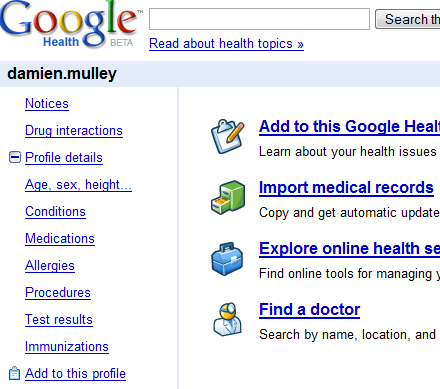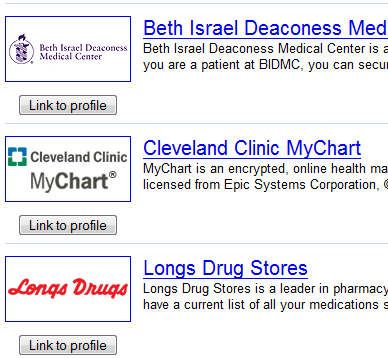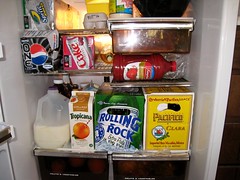There’s been a good bit of talk again of late about Bebo and Facebook and YouTube and the good and evil that happens in and around them.
I’m a proponent of social networks and think like most technologies that they’re a very positive thing but anything that enhances one aspect of humanity can enhance the good or the bad.
Social networks in the Irish context sprung up overnight and became the defacto place to hang online for teenagers and those in their early twenties. This still holds true. It was a new place and a new way of interacting. Our current daily social norms have taken 100s if not 1000s of years to form, Bebo is a new world where these norms are being worked out as we speak by those inside it and those outside must be baffled and scared when maybe they should be bringing their wisdom and experiences into it to share and guide people.

Photo owned by ToastyKen (cc)
The good:
Relationships are accentuated with social networks. They’re good people management tools. We can store details of dozens and hundreds of friends and acquaintances. The mobile phone allowed us to store hundreds of numbers on our phone that we’d never remember without a physical address book. The social network expands on that. Our friends can update us by just changing their status on Facebook or upload pics of their holidays to Bebo and everyone they’re connected to get informed of this and can look at the pictures. The daysof sending 15 postcards to people is over. A facebook update takes care of it all. Social networks also reconnect us with old friends, friends who we’d never remain in contact with because of Geography. Families scattered around the world can stay connected and informed via social networks. I often chat to old college friends in America and New Zealand. Because of the ability to stay connected over a lifetime and over continents, our friends lists are much larger than before. The Dunbar number with the idea we can only maintain a certain amount of quality relationships with people has been inflated hugely now. I firmly believe humanity is becoming far more friendly because of these technologies.

Photo owned by Annie Mole (cc)
The bad:
With this new Big Brother and American Idol nasty culture, everyone seems to want to be nastier than Simon Cowell and on social networks, blogs and YouTube you see some people trying to outdo each other on how can be most vitriolic. In a normal social situation people like this would be rebuked but online that doesn’t seem to happen. Given the positive reinforcement from mainstream TV shows, it’s only encouarging people to explore their hyper-critical sides. I’m reminded of a free class in school that gets rowdier and rowdier as time goes on and gets calmed down with the teacher next door coming in or the free class ending when the next class starts. Imagine this rowdy class going on forever. Not good.
There does not appear to be much supervision on these sites of the kids. Playgrounds do not necessarily have supervisors but they are within reach of homes and people doing about their business in estates. Sites like Bebo, Facebook and YouTube have report abuse functions and they seem to be working hard at making them better but it’s not that you need adults going “stop that” but you do need people going “Do you not think that? How about?”.

Photo owned by szlea (cc)
The utterly horrible:
Things can go out of control quite quickly. Like real life there’s bullying and harassment though it can be controlled slightly as you can lock down a profile and deny the bullies access to leaving comments. Like Lord of the flies though, kids without adult guidance could take things down a wrong path and keep going and going and going. Bullies in real life are recording their attacks (what is it with bullies and dictators being some of the earliest adopters of tech?) which rang from tauting, to violence and beatings and uploading them to YouTube and Bebo and distributing these videos amongst their peers. The videos get taken down eventually or sometimes rapidly after complaints but pop up again in new videos that get around the blocking software. The bullies build shrines to their attacks like the way some serial killers takes momentos of their murders. You have terrorist groups doling out punishment beatings to people or covering people in paint as a visual method of ascerting their authority and this tar and feathering is now happening online too. But it’s accentuated. A network of 1000 kids can see a video within hours wheras word of mouth is a lot lot slower than that.
So what can be done?
Don’t ban Bebo or social networks. Parents should learn how to use social networks and take part in them and see where their kids are playing these days. They should be able to dive in and out now and then but without excessively spying on their kids but parents should have the ability to make sure everything is ok. Same goes for teachers. Demanding access to their profile though, I’m not so sure. I do wonder whether the report abuse functions should be better too. Were I Bebo I’d consider the Boards.ie Community model where the community looks after each other with voluntary moderators ensuring smooth sailing. Perhaps if you are under 16 for example you’re profile is always connected to an identified counsellor or team of counsellors who can give advice.
The services do have age restrictions but it’s not like they ask you to prove your age so 8 year olds can just like and say they’re 15 and they’re on Bebo. YouTube is 16 and over, Facebook and Bebo are 13 and over, in line with US data protection laws and MySpace is 14 and over.
The worst thing a parent can possibly do is believe the hype that only bad things happen on these sites and they need to slam them without ever understanding them and I fear that’s what is happening again and again.
A big thank you to Josie Fraser for her advice and thoughts on this area. Here’s a great overview to Cyberbullying and how to deal with it. RTE 1’s Prime Time programme is doing a piece on Cyber Bullying tonight at 2130. It might be worth watching.












